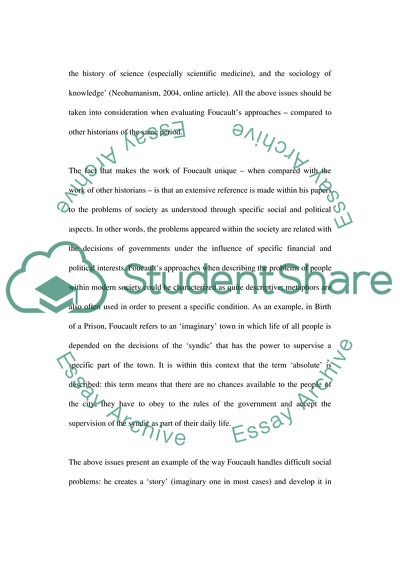Cite this document
(Foucault's Distinctive Approach Essay Example | Topics and Well Written Essays - 3000 words, n.d.)
Foucault's Distinctive Approach Essay Example | Topics and Well Written Essays - 3000 words. Retrieved from https://studentshare.org/politics/1713099-foucault-essay-below-is-a-list-of-questions-of-which-any-one-can-be-answered
Foucault's Distinctive Approach Essay Example | Topics and Well Written Essays - 3000 words. Retrieved from https://studentshare.org/politics/1713099-foucault-essay-below-is-a-list-of-questions-of-which-any-one-can-be-answered
(Foucault'S Distinctive Approach Essay Example | Topics and Well Written Essays - 3000 Words)
Foucault'S Distinctive Approach Essay Example | Topics and Well Written Essays - 3000 Words. https://studentshare.org/politics/1713099-foucault-essay-below-is-a-list-of-questions-of-which-any-one-can-be-answered.
Foucault'S Distinctive Approach Essay Example | Topics and Well Written Essays - 3000 Words. https://studentshare.org/politics/1713099-foucault-essay-below-is-a-list-of-questions-of-which-any-one-can-be-answered.
“Foucault'S Distinctive Approach Essay Example | Topics and Well Written Essays - 3000 Words”, n.d. https://studentshare.org/politics/1713099-foucault-essay-below-is-a-list-of-questions-of-which-any-one-can-be-answered.


